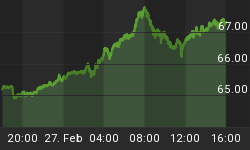U.S. cities and counties have signed procurement deals for nearly 8.3 gigawatts (GW) of renewable energy since 2015, the new Local Government Renewables Action Tracker resource showed on Wednesday.
The new resource, launched by the American Cities Climate Challenge Renewables Accelerator, showed that local governments across the United States signed a total of 335 deals to procure 8.28 GW of renewable energy over the last five years, which is more than the total energy generation capacity of Alaska, Hawaii, Rhode Island, and Vermont combined, World Resources Institute said in a statement today.
According to the tracker, last year was the best year so far in terms of capacity, with 2.63 GW of deals announced. Since 2015, the largest number of deals that cities and counties have announced were for off-site physical power purchase agreements (PPAs), with 131 in total, followed by 116 deals for community solar power, and on-site solar with 74 transactions. Texas and California were home to the biggest capacity deals of local governments, according to the tracker.
“Local communities are using their buying power and collective voice to accelerate the transition to renewables—a trend that is quickly spreading in communities across the country,” said Lori Bird, U.S. energy director at World Resources Institute.
Even Houston, Texas, the ‘oil capital’ of the United States, is a large buyer of renewable energy. Related: Singapore's $3 Billion Oil Trading Scandal
According to the 2019 City Clean Energy Scorecard, compiled by the nonprofit organization American Council for an Energy-Efficient Economy (ACEEE) which ranks 75 large U.S. cities, Boston ranked first, followed by San Francisco, Seattle, Minneapolis, Washington DC, New York City, Los Angeles, Denver, Austin, and Portland.
Despite the ramping up of clean energy efforts, notably with stricter energy-saving rules for buildings, only a few U.S. cities appear on track to meet their community-wide climate goals, the Scorecard showed.
“Cities are making impressive clean energy gains—taking big steps to waste less energy and encourage more renewable power. But they have more to do,” said ACEEE senior research manager and lead report author David Ribeiro.
By Charles Kennedy of Oilprice.com
More Top Reads From Safehaven.com:
















